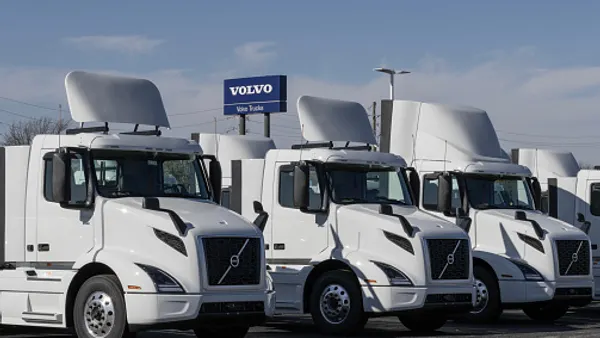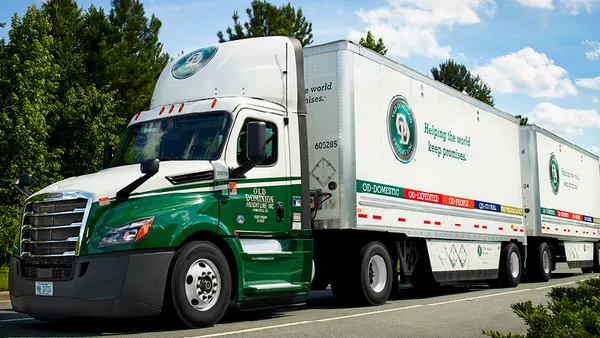Dive Brief:
- Citing air-safety concerns, airline trade groups and battery industry representatives are seeking stronger enforcement against producers and exporters of "rogue" lithium batteries.
- The International Air Transport Association (IATA), the International Air Cargo Association, the U.S. Rechargeable Battery Association and others recently called for enforcement of lithium battery safety regulations at points of origin, including initial shipper and batter manufacturer.
- Writing to officials in the largest lithium battery manufacturing and export countries, the groups also asked for significant fines and custodial sentences for scofflaws. Abuses of the shipping regulations place aircraft and passenger safety at risk, and must be criminalized, stated the IATA.
Dive Insight:
The trade groups' call for greater enforcement is not a reversal on their opposition to a general ban. Rather, a minority of exporters continue to threaten the legitimacy of the "legitimate" battery and product manufacturers, according to the press release.
The lack of enforcement is adding pressure on regulators and airlines to ban all forms of lithium battery shipments from aircraft, which would make global supply chains and consumer goods more expensive, the IATA and PRBA say. A ban, they add, could risk lives by slowing the delivery of critical medical equipment and lithium-powered military applications.
On April 1, a temporary, non-binding U.N. ban against cargo shipments of lithium ion batteries on passenger planes went into effect, as NBC News reported earlier this year. Rechargeable lithium ion batteries, used in laptops, cellphones and other devices, can overheat and have been blamed for in-flight fires. Federal Aviation Administration studies show that lithium battery fires are of an uncontrollable quality and could overwhelm aircraft cargo fire protection systems, according to Supply Chain Brain.












